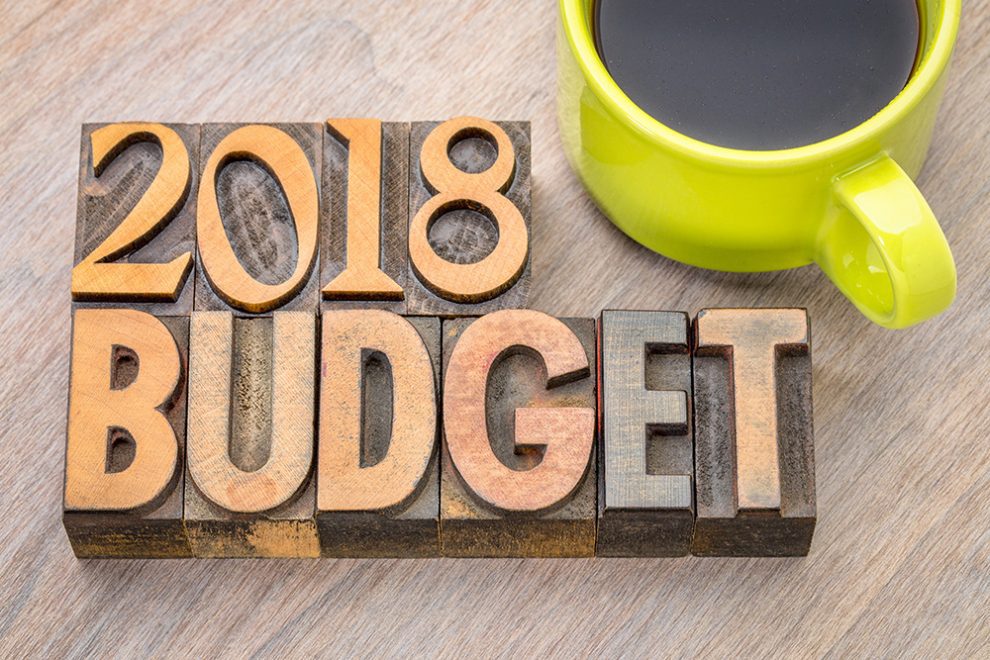The Budget promises to deliver a strong economy, more jobs, guaranteed essential services and the government living within its means, so what does this mean to you? Money Expert and Financial Adviser, Olivia Maragna, looks at who the winners and loser are in the budget 2018.
Tax cuts for 10 million Australians
There’s immediate relief for Australians on low to middle incomes, as well as light at the end of the tunnel for higher-income earners. Those earning up to $90,000 will get a tax cut of up to $530 via an increase to the low and middle income tax offset as of July 1 2018.
Having raised it from $80,000 to $87,000 in 2017, the government is now bumping up the 37c on the dollar threshold to $90,000. By 2024-25, that threshold will be eliminated and those earning $200,000 or less will face a top tax rate of no more than 32.5c in the dollar.
Benefits for Self-Managed Super Funds
An SMSF friendly budget is the good news coming out of the 2018-19 Federal Budget. With SMSF members still working through the wide-reaching and complex superannuation changes which took effect from 1 July 2017, this Federal Budget will provide much needed stability while looking to reduce costs for SMSFs and prove additional flexibility.
The key changes proposed for SMSFs and superannuation are:
Three‑yearly audit cycle for some self‑managed superannuation funds
The Government will change the annual SMSF audit requirement to a three yearly requirement for SMSFs with a history of good record keeping and compliance. The measure will start on 1 July 2019 for SMSF trustees that have a history of three consecutive years of clear audit reports and that have lodged the fund’s annual returns in a timely manner.
Expanding the SMSF member limit from four to six
As already announced, the Federal Government confirmed its decision to expand the number of members allowed in an SMSF from four to six. Expanding the definition of an SMSF to a fund with a maximum of six members will provide greater flexibility in how funds can be structured.
Work test exemption
The Government will provide more time for Australians aged 65 to 74 to boost their retirement savings, by introducing an exemption from the superannuation work test.
This exemption will apply where an individual’s total superannuation balance is below $300,000 and will permit voluntary superannuation contributions in the first year that they do not meet the work test requirements.
Boomer benefits
As they have with every other life stage, the baby boomers look set to reinvent old age and how it is funded.
Older Australians who want to keep working can take advantage of the Pension Work Bonus being raised from $250 to $300 a fortnight. (This will allow them to earn up to $7,800 without having their pension reduced.)
The Pension Loan Scheme is also being expanded. This means many more retirees including full rate pensioners and self-funded retirees can boost their retirement income by up to $17,787 a year by borrowing against the equity they have in their home.
Older Australians wanting to stay in their own homes despite confronting medical challenges, can take advantage of the additional 14,000 high-level home care packages that have been provided. There’s also more money for palliative care and mental health services for those in residential aged care.
The Pharmaceutical Benefits Scheme has received a $1.4 billion boost to list more medicines including those to treat breast cancer and relapsing-remitting multiple sclerosis.
Super fees slashed for younger Australians
There’s not a lot in this Budget for younger Australians but they will at least get a better deal on their super.
Fees on accounts with balances of $6,000 or under will be capped at 3 per cent (of the balance). Exit fees will be banned when super funds are consolidated. The ATO will be supported to proactively consolidate any inactive super accounts a taxpayer has with their active account.
Rather than being the default option, life insurance will be offered on an opt-in basis for super fund members under 25.
Cigs up, beer down, commutes quicker, power cheaper
In more bad news for smokers, the Government is cracking down on the sale of black-market tobacco. But Australia’s craft beer lovers may enjoy more affordable artisanal ales following changes to the excise rate on small kegs.
The Government is funding infrastructure projects across the country. Among other benefits, this should result in safer, less congested roads. Australians will also benefit from the introduction of the national energy guarantee which is predicted to result in the power bill of an average household falling by $400 from 2020.
Counterfactual cost savings
Although these cost savings won’t affect the hip pocket, the measures are welcome news. The planned 0.5 per cent increase to the Medicare Levy to fund the NDIS has been scrapped. The franking credits cash refund remains. Negative gearing and the capital gains tax discount on investment properties has not been curbed. Furthermore, the government is funding its largesse through measures such as cracking down on welfare overpayments and targeting tax-shy multinationals rather than jacking up taxes and levies on working Australians.
Having taken the GFC and end of the mining boom in its stride, Australia’s AAA-rated economy continues to power along. The Budget is even set to return to modest surplus in 2019-20 and, barring any unforeseen events, the Treasurer looks likely to achieve the goals he has set.























Add Comment